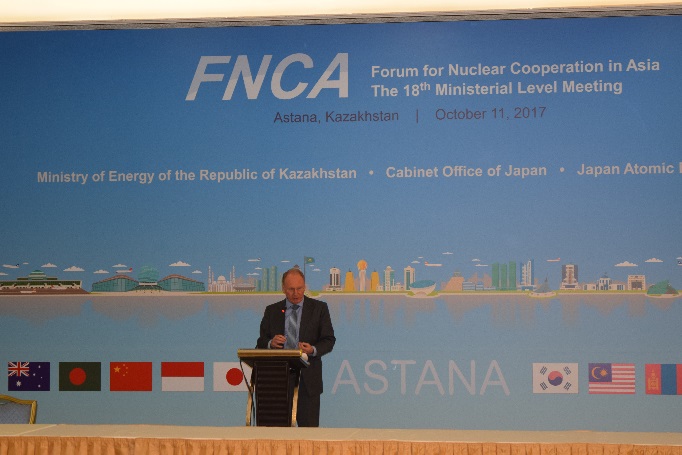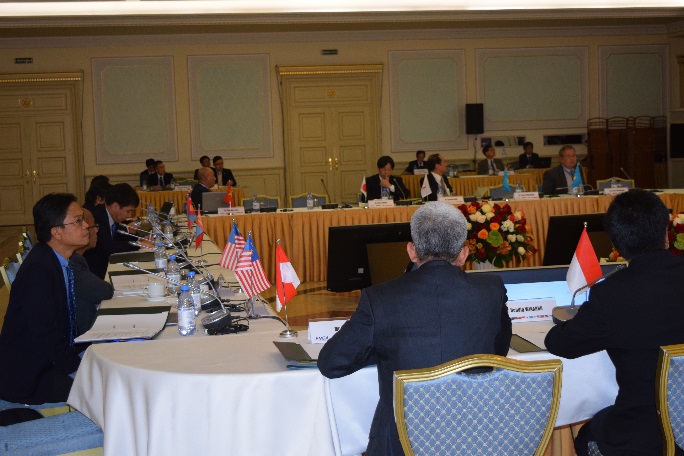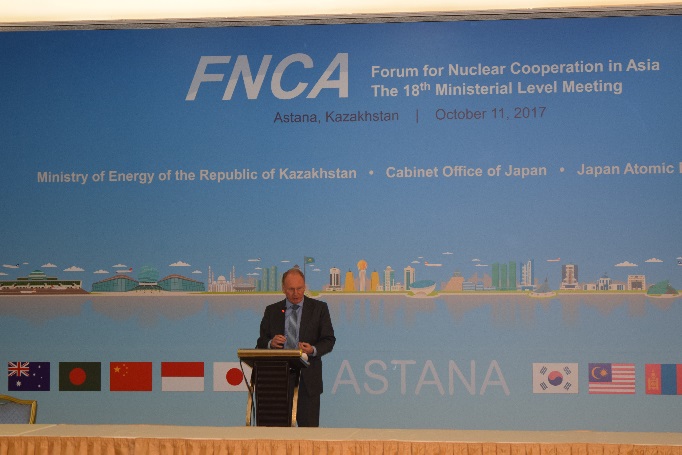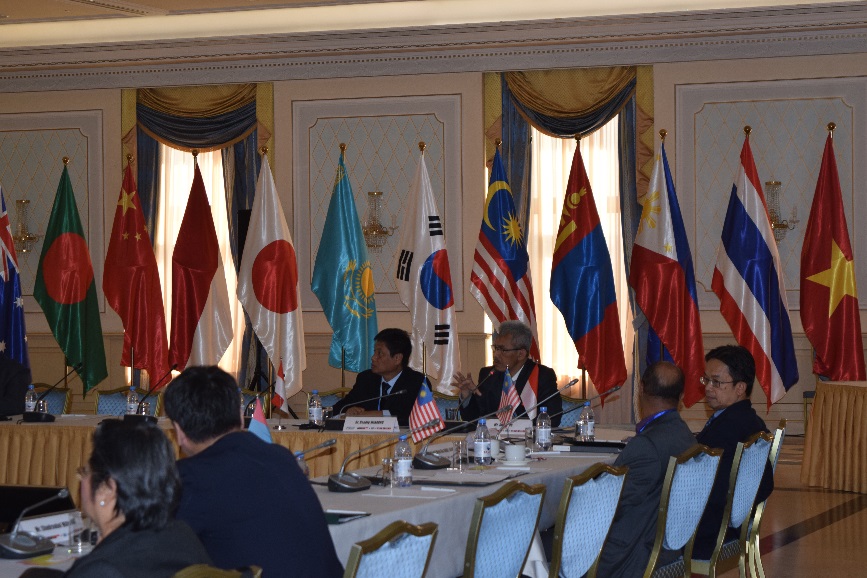ISTC's Participation in the Forum for Nuclear Cooperation in Asia (FNCA) Meeting

ISTC's Participation in the Forum for Nuclear Cooperation in Asia (FNCA) Meeting
On October 10, 2017, David Cleave, the ISTC’s Executive Director participated in the 18th meeting of the Forum for Nuclear Cooperation in Asia (FNCA) in Astana.
FNCA, originally International Conference for Nuclear Cooperation in Asia (ICNCA), was established in March 1990 on the initiative of the Japanese Atomic Energy Commission. Under the FNCA framework 12 countries, consisting of Australia, Bangladesh, China, Indonesia, Japan, Kazakhstan, the Republic of Korea, Malaysia, Mongolia, the Philippines, Thailand and Vietnam are working together in the fields of radiation utilization in the industry, environment and medicine, research reactor utilization, nuclear safety and nuclear infrastructure.


FNCA Participants David Cleave, ISTC Executive Director
David Cleave presented the project collaborations among the ISTC’s participating countries in the nuclear non-proliferation field and described the recent EU initiatives such as Chemical, Biological, Radioactive and Nuclear Centers of Excellence (CBRN CoE) in Central Asia as a part of the Project 53 which was inaugurated for strengthening legal framework and training in areas of bio-safety and bio-security. David Cleave also reported on the Project 60 which is dedicated to nuclear safety and nuclear security in Southern African nations and beyond.
ISTC is envisaging to start a close collaboration through FNCA activities with Asian countries which have interests in nuclear safety and nuclear security by sharing its experiences on projects and trainings for enhancing capability in peaceful purpose use and safeguards of nuclear power. The ISTC’s Executive Director underlined the importance of networking opportunity between the EU countries and specialists from the Asian countries.

Questions and Answers

